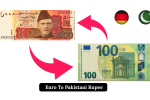Denmark Tightens Rules for International Students: Stronger Entry Requirements, Less Flexibility 2025

Denmark Tightens Rules for International Students: Stronger Entry Requirements, Less Flexibility 2025. Denmark is reshaping its international student policies in 2025, introducing stricter entry requirements, enhanced document verification, and reduced post-study benefits. These reforms aim to curb misuse of student visas, ensure academic integrity, and protect Denmark’s labour market. While these changes safeguard educational standards, they raise concerns about access, fairness, and the challenges for genuine students planning to study in Denmark.
If you are an international student considering Denmark in 2025, this guide will walk you through what’s changing, why, who is affected, and how to adapt to the new rules.
What’s Changing for International Students in Denmark
The Danish government has implemented several key measures that affect visa eligibility, work rights, and family reunification for non-EU/EEA students. Below are the main changes:
1. Academic Entry Requirements and Verification
- Stricter Academic Qualifications: Applicants from third countries must now demonstrate stronger academic credentials. Minimum GPA, verified transcripts, and language proficiency are essential.
- Enhanced Document Verification: Universities must verify every document before granting admission. This includes checking certificates against official registries, national ID verification, and preventing document fraud.
- Targeted Language or Entrance Tests: Some institutions may require additional entrance exams or language proficiency tests to ensure students can cope academically.
2. Restrictions for Non-State-Approved or Unaccredited Programmes
As of 2 May 2025, international students enrolled in non-state-approved programmes face significant limitations:
| Privilege | Status for Non-State-Approved Programmes |
|---|---|
| Work Permit During Studies | Limited or not granted |
| Post-Study Job-Seeking Permit | Often removed |
| Family/Dependent Rights | Not allowed for new applicants |
Students must now carefully choose accredited institutions to retain post-study work rights and family privileges.
3. Shorter Post-Study Work Permits
Previously, graduates could stay in Denmark for up to three years under the job-seeking visa. The 2025 reforms include:
- Reduction of post-study work permits to one year for some students.
- Removal of job-seeking stay for students in non-accredited programs.
- Specific nationalities may face stricter post-study limitations.
4. Dependents and Family Restrictions
- Non-accredited programme students cannot bring spouses or children under the student’s residence permit.
- Limits on dependents affect planning for married students or those with children.
- These measures aim to prevent misuse of student visas as a migration shortcut.
5. Document Fraud Intensified
Denmark observed a sharp increase in visa rejections due to falsified documents:
- Over 1,100 applications rejected in 2025 vs. just 107 in 2020.
- Universities and authorities now conduct more rigorous checks on academic credentials.
- Previous permits may be reviewed if fraudulent documents are found.
Why Denmark Is Tightening International Student Rules
Denmark’s policy changes are driven by multiple concerns:
- Preventing misuse of study permits – Some students were using education as a backdoor to the labour market.
- Improving academic outcomes – Higher entry standards ensure students are genuinely study-oriented.
- Protecting labour markets – Reduces pressure from students working illegally or exceeding permitted work hours.
- Maintaining international reputation – Ensures Denmark’s higher education system is seen as credible and high-quality.
Entities: Ministry of Higher Education Denmark, The PIE News, Aarhus University
Earlier Related Policy Changes
- Pre-2025, Denmark already restricted work hours for international students (20 hours/week during term, full-time during summer).
- Non-accredited programs faced limitations on work permits and post-study stay.
- These reforms now standardize and intensify enforcement.
Reactions and Criticisms
Support
- Policymakers argue that stricter rules reduce visa misuse and maintain academic integrity.
- Some student organisations welcome rigorous verification and cleaner recruitment practices.
Concerns
- Access & Equity: Students from developing countries may struggle due to weaker documentation or financial constraints.
- Vague Criteria: Universities have discretion over what qualifies as “adequate academic qualification,” leading to uncertainty.
- Impact on Genuine Students: Honest students may lose rights if their program is not state-approved.
- Family & Social Costs: Restrictions on dependents may affect life planning and mental well-being.
- Reputation Risk: Denmark may become less attractive compared to other countries offering flexible post-study options.
Who Is Most Affected
- Students in non-state-approved or unaccredited programs.
- Applicants from Bangladesh, Nepal, India, due to higher misuse or dropout rates cited in surveys.
- Students applying after May 2, 2025, as new rules apply to them.
- Private institutions that are not state-recognized may see decreased international enrolment.
Key Data & Trends
- Visa rejections due to falsified documents: 107 in 2020 → 1,100+ in 2025.
- Dropout rates: First-year Bangladeshi students at Aarhus University 13% vs. 4% other internationals.
- Exam non-attendance: 14–25% among South Asian students vs. 5–6% others.
- Pass rates: 55–65% for Bangladeshi/Nepali students vs. 90%+ for others.
This data emphasizes Denmark’s shift toward migration control, labour market protection, and academic integrity.
How Students Can Adapt
1. Choose Accredited / State-Approved Programs
- Ensures work rights, post-study stay, and dependent benefits.
- Avoid non-accredited courses to prevent loss of privileges.
2. Prepare Documentation Carefully
- Verify authenticity of academic credentials.
- Ensure proper translation and certification of documents.
3. Financial Planning
- Reduced work opportunities may require reliance on personal funds or scholarships.
4. Monitor Visa Timelines
- Applying before policy cut-offs may provide more rights.
- Current permit holders may retain older benefits if “grandfathered.”
5. Advocacy and Monitoring
- Student associations and agents can push for clarity, fairness, and preparatory support.
FAQs
Q1: Can I still bring my family if I enroll in a non-accredited program?
A1: No, Denmark 2025 rules restrict family reunification for students in non-state-approved programs.
Q2: How long can I stay after graduation in Denmark now?
A2: Post-study work permits may be reduced to one year or removed entirely for unaccredited program students.
Q3: Which countries’ students are most affected?
A3: Students from Bangladesh, Nepal, and India are specifically highlighted due to higher rates of misuse or dropout.
Q4: What happens if my documents are delayed or inconsistent?
A4: Delays may lead to visa rejection; universities now verify all documents rigorously.
Q5: Are there exceptions for already enrolled students?
A5: Students with permits before May 2, 2025, may retain older rights under “grandfathering” rules.
Conclusion
Denmark’s 2025 international student reforms emphasize academic integrity, visa security, and labour market protection, but also pose challenges for genuine students and families. Choosing accredited programmes, preparing documentation meticulously, and planning finances are crucial for compliance. Stay informed, monitor updates, and consider state-approved courses to maximize your study experience in Denmark.











